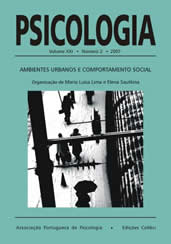Insecurity and public conviviality, the case of two Mexican towns: Mexico and Querétaro
DOI:
https://doi.org/10.17575/rpsicol.v21i2.367Keywords:
-Abstract
This paper analyses the relation between the perception of insecurity and the ways of living together and public conviviality in wealthy and popular neighbourhoods of Mexico and of a small provincial town, Querétaro. Data have been collected by interviews an the participants’ home. Mexico is seen as an insecure town in which i tis difficult to live. Querétaro instead, is seen as quiet and convivial. Results show that urban structure and insecurity have only a weak influence on the way of life in popular neighbourhoods. The inhabitants of wealthy neighbourhoods of the two cities differentiate themsekves in their way of living together. In Querétaro local participation is intense and inhabitants meet essentially in the street, in Mexico instead, neighbourhood life and local participation is low. In Mexico sociability is organized an people meet mostly in bars and other public places. The lack of public conviviality in upper class neighbourhoods of mexico is as much due to the effect of the living conditions of a big metropolis that to problems of insecurity. Withdrawal, the relative indifference to other and the reluctance to implicate oneself in neighbourhood life are typical behaviours of city dwellers.


